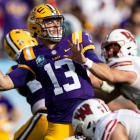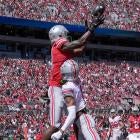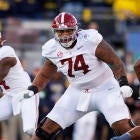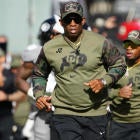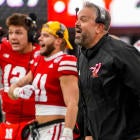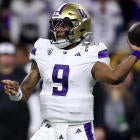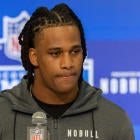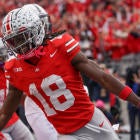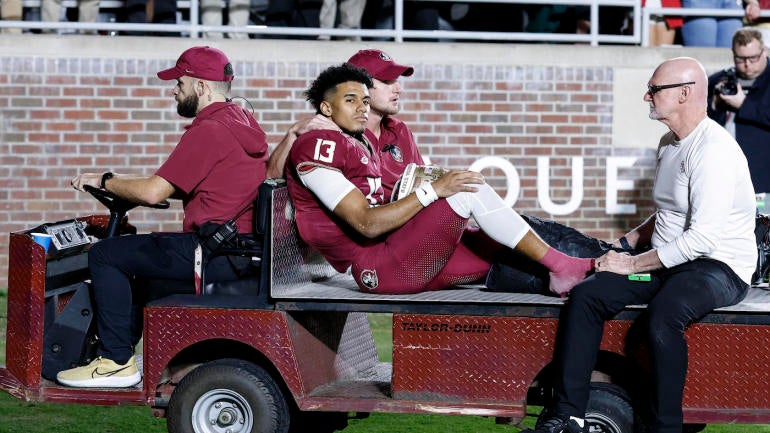
The NCAA Rules Committee discussed following in the NFL's footsteps and adopting a rule banning the controversial hip-drop tackle this year, CBS Sports has learned. Those talks were tabled, however, as the committee decided it would be too difficult to legislate the rule on the field.
The NFL on Monday adopted a rule against the obscure defensive tactic citing player health and safety concerns. The NCAA Rules Committee has been aware of concerns over hip-drop tackles but decided to keep it on "our active discussion list," according to coordinator of officials Steve Shaw.
"The conclusion from this year's meeting was that we needed a solid definition of the action," Shaw told CBS Sports."[Waiting is] an excellent way to teach players how to avoid this technique and to ensure we can administrate it."
Shaw said it would be difficult for any official to enforce a penalty on the hip drop and explained the rule would add to an already full plate of issues for crews to monitor on any given play. The NFL defines a hip-drop tackle as a defender who "grabs the runner with both hands or wraps with both arms and unweights himself by swiveling and dropping his hips and/or landing on and trapping the runner's leg(s)."
"It's more than just dragging the player down," Shaw said. "It doesn't have to be a twist. You take your weight and drop it. That's what causes the devastating injury."
Shaw provided CBS Sports with footage of the season-ending injury to Florida State quarterback Jordan Travis on Nov. 18. He singled out the incident as a "classic" hip-drop tackle by a North Alabama defender. The Seminoles were No. 4 in the College Football Playoff Rankings at the time of losing their star player; ultimately, that played into FSU being snubbed from the four-team playoff despite finishing as undefeated ACC champions, as the CFP Selection Committee admitted.
The NFLPA objected to the hip-drop tackle being banned. The players' union has been on the opposite side of the league on the issue since at least last year when it said the rule, "places defensive players in an impossible position by creating indecision in the mind of any tackling player, puts officials in an unreasonable situation that will result in inconsistent calls on the field and confuses our fans."
According to the NFL, the injury rate on hip drop-tackles is 20-25 times higher than on other plays during games.
"My concern is … the rules putting so much on the officials," Iowa coach Kirk Ferentz said this week. "We just passed a [stronger enforcement structure] to go back to the uniform police [to have pants cover the knees]. Just get the pass interference calls right."
"We all want the game safer but need a defined rule that can be taught to tacklers," Shaw said. "We will be in position to see how this goes in the NFL."













